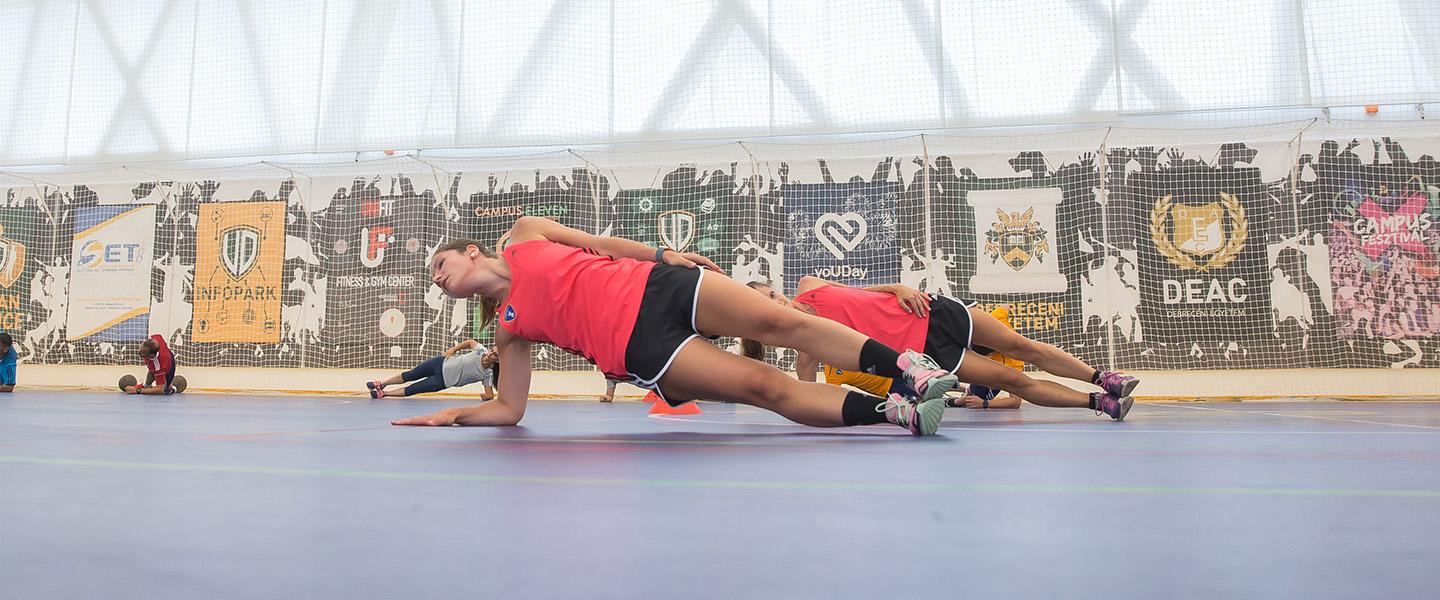Stay fit and healthy with the IHF
07 Apr. 2020

The ongoing COVID-19 outbreak means people all around the world are finding new ways to keep fit either through home or outdoor training.
And handball is no different.
The #handballathome social media movement is highlighting what players, teams and fans all across the globe are doing to keep in shape and stay healthy.
One key team in handball are the match officials, which include referees, delegates and observers. Since February 2017, the Spanish wellness and sports performance company FITGOOD PRO, have been working in partnership with the IHF and Chairperson of the IHF Playing Rules and Referees Commission (PRC), Ramon Gallego, to support this group to be the best prepared they can be – both physically and mentally – to whistle and officiate at the very highest level there is.
FITGOOD PRO work with the IHF officials at events throughout the year with Fitness Coach Coordinators and a Physiotherapist on site, backed up by dieticians and nutritionists remotely.
During the COVID-19 virus outbreak the IHF and FITGOOD PRO have developed general advice and ways to strengthen the immune system for IHF officials, adapted to every kind of athlete, including home training for anyone who has to stay at home and how to avoid situations of immunodepression due to excessive intensity of training.
*This fitness at home advice is meant as a guideline only, please check with a health professional before trying any new exercise regime*
Training
• Do NOT put in 100% training intensity on any aerobic, anaerobic or strengthening exercise
• For trained people, the maximum training intensity should not exceed 80% and for 45 minutes
• For trained people, do not train for more than 1.5 hours at a moderate intensity of 70-80%, for amateurs, 45 minutes and 70%
• Use open, natural spaces for training, in case of home training, open windows during exercise
• If you have to train indoors, do not breathe heavily near people, air conditioning units/fans, do not share water bottles or drink from water fountains
• If you have a cold, stay home, and if there is any discomfort or fever, do not train
• If you have a medical prescription of physical activity due to chronic illness (diabetes, cardiovascular, cancer etc) reduce intensity and increase your rest
• Sleep well and reduce stress
• Maximise hygiene by washing hands and showering
• In case of confinement, try to train with the full family e.g. by using a familiar game
Nutrition
• Have a healthy and varied nutritional intake
• Increase vitamins A, C and D (eggs, diary and oily fish), zinc, selenium (Brazil nuts), lactoferrin, cysteine
• Eat vegetables and assorted fruits (vitamins and antioxidants), eggs, garlic, turmeric, ginger, shiitake and reishi mushrooms, quality honey (non-boiled organic: two tablespoons a day), supplement with vitamin D
• Spend time in the sun, if locked down, even on your balcony (if you have one)
• Decrease or avoid alcohol, simple sugars and low quality fats
• Take care of the microbiota with probiotics, yogurts etc
• Eat according to the Harvard University ‘Healthy Eating Plate’ method
• Adapt the amount of carbohydrates to your daily energy spend and remember: Less activity = less food
• Drink more water: hot drinks (infusions or teas), like sagebrush (Artemisia Nua) and thyme (Thymus)
• Visit the IHF Education Centre to see our bespoke ‘Health and Nutrition for Sports Performance’ programme for IHF Referees HERE
General Advice
• Sleep well, reduce stress and try not to fall into fear: all are immunosuppressive conditions which diminish the body's ability to defend against viruses and bacteria
• Try meditation or mindfulness exercise
• Avoid crowded urban spaces
• Go out into nature for walking or light-moderate physical activity and sunbathe – these will help you reduce stress and increase your natural defences
• It is about being cautious, without getting into fear or panic
• We must all be responsible for cutting the spread of transmission
• Think about the most vulnerable: the elderly, those with acute, chronic diseases, or multiple chronic diseases (polypathology)
*To keep yourself and others around you safe and healthy, please follow the advice and guidance of your country government and see the latest updates from the World Health Organization*

